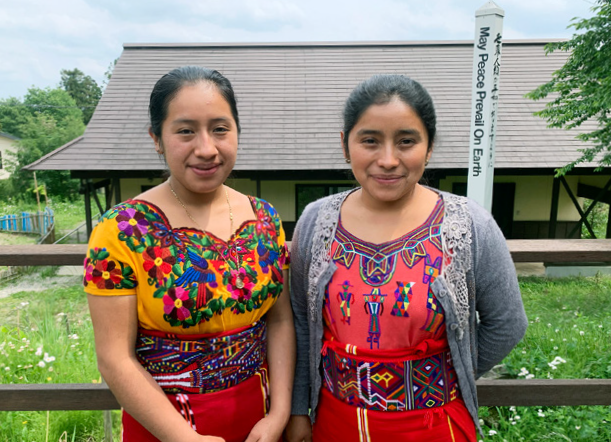Your generosity supports leaders to transform their communities.

Marita and Ester are two of the 32 participants studying at the Asian Rural Institute supported through your Mission & Service gifts.
Credit: ARI
In 2019, 135 million people faced acute food insecurity. In 2022, the number of people who don’t have enough food to meet their basic needs has soared to 345 million. The United Nations calls 2022 a “year of unprecedented hunger.”
One of the ways your Mission & Service gifts are working to address hunger is by supporting agricultural training centres like the Asian Rural Institute based in Japan.
Earlier this summer, 32 community leaders from around the world arrived to study.
“Some enroll to solve problems like raising livestock, others to cope with climate change, and still others to find a market for organic produce. For many, it is their first time travelling outside their countries or even communities. For them, simply sharing life with people from diverse backgrounds and experiences is filled with immense learning,” reports ARI in a recent newsletter.
Marita and Ester are two of the participants. Both women work for a global organization called CIEDEG (Conference of Evangelical Churches of Guatemala), where they teach agriculture and support children’s education in church and schools.
Shortly after United Church staff referred CIEDEG to ARI, the women signed up. In their own words, they describe what motivated them to apply:
We decided to apply for the program [at ARI] because we wanted to learn more and improve our work. Just as we are learning at ARI, we would like to work together with everyone, physically growing vegetables and caring for animals while sharing our knowledge.
In our hometowns, vegetables are usually grown in monocultures. However, at ARI, we are growing multiple varieties of vegetables, taking advantage of each vegetable’s characteristics, and we look forward to learning more about this during the training. We can improve nutrition in the local market by growing vegetables in multiple varieties.
There are many difficulties that the Indigenous Mayan people, especially women, face. Poverty is still a significant issue in Guatemala, and there are also problems such as alcoholism and discrimination among ethnic groups. These problems leave many people, especially families with single mothers, in difficult financial and nutritional situations. There are organizations in each region that support these women and their children, and we want to work with such organizations to empower women.
Your generosity helps provide education and training and supports leaders to transform their communities so that no one goes hungry. Each and every gift matters. Thank you.
Sources
Take My Hand: Asian Rural Institute Bulletin, Summer 2022.
World Food Programme, “A global food crisis.”